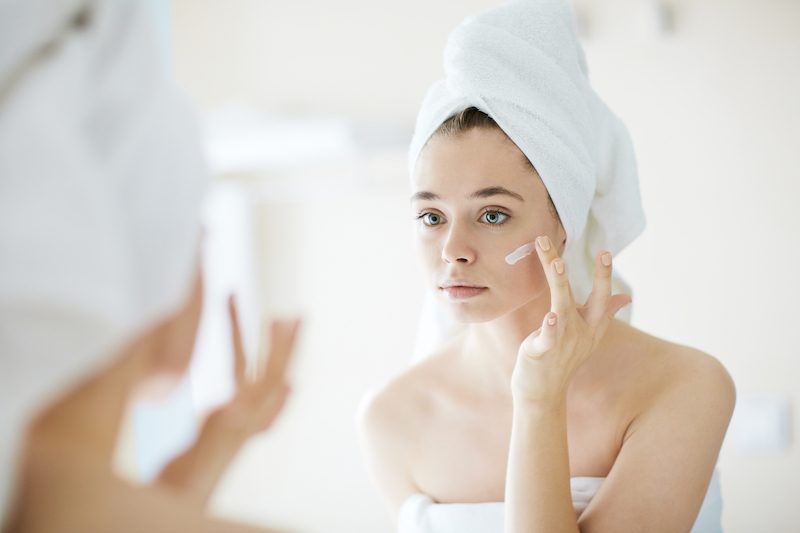Question: Serums & Moisturizers. Are they the same thing?
Answer: Nope
Question: Serums & Moisturizers. Can you use one without the other?
Answer: You can but you may not want to.
Question: Serums & Moisturizers. Must you use them both?
Answer: You can but you don’t have to.
Serums and moisturizers help the skin in different ways. For some, particularly those who do not have dry skin, a serum alone will be enough. At other times, when your skin is dry or the environment is drying, you will find that you need both a serum and a moisturizer.

What’s the difference between a serum and a moisturizer?
Serums are thinner and lighter than moisturizers and have a greater variety of functions. A serum usually has smaller molecules combined with a high concentration of ingredients designed to penetrate, improve and/or nourish the skin in some way. A moisturizer’s job is to hydrate the skin and prevent water loss.
So actually, the biggest difference between a serum and a moisturizer is what the serum does NOT include. Serums leave out the occlusive moisturizing ingredients such as petrolatum or mineral oil that keep water from evaporating. They also contain fewer lubricating and thickening agents, like nut or seed oils. In fact, most serums are water-based, eliminating oils completely.
Because they leave out these moisturizing agents, serums are left with a high concentration of active ingredients. Serums often contain the strongest dose of ingredients — like antioxidants, peptides, and skin brighteners — that you can find in nonprescription products.

Because active ingredients are more expensive than thickeners, serums can also be more costly. But when applied properly, a 1-ounce container of serum should last you months, and many serums have applicators to dispense just the tiny amount you need.
When should you use them?
Since serums contain the active ingredients that you want to penetrate as deeply as possible into your skin, you should always apply a serum directly to your skin after cleansing or toning and before your moisturizer and sunscreen. Don’t put your serum on after you moisturize. The thicker, heavier ingredients in creams & lotions are designed to form a barrier on your skin. But they can also lock active ingredients out.
You can use your serum(s) both morning and night. They do not necessarily replace your moisturizer but can boost the hydrating effects of your moisturizer.
Moisturizers have a simpler job; they are meant to hydrate the skin and prevent water loss. Some have added anti-aging ingredients, so they can do double duty for your skin, but their main role is to get hydration to the skin and keep it there. In order to really address a difficult skin care problem, like sun damage or hyperpigmentation, you’ll want to combine your moisturizer with a quality serum.
How to know what’s right for you?
If you’ve made the step up from “drugstore” brands and department store beauty and into medical grade skin care, you’ll want a personal consult on what your skin needs. It may also not always be the same combination of products, as skin conditions change, improve, are stressed etc. by both internal and external factors.
What are some summer specifics?
Here are some products great for summer:
- Elta Sunscreen. Elta offers a wide variety of sunscreens for the driest of dry skin to the oily/acne prone It’s a broad spectrum sunscreen using zinc oxide that also comes in tinted form. Some of the products also have ingredients such as sodium hyaluronate and lactic acid that can help treat, hydrate and replenish the skin, as well as protect from the sun.
- 2% salicylic serum. Summer heat can bring on back/chest breakouts. Most experts recommend salicylic treatment for this, versus a benzoyl peroxide. (BPO can have a bleaching property, so once you sweat your clothing can actually appear bleached out in spots).
- Skin Better Even. To help with hyperpigmentation. This product has natural lightening and brightening agents in it, versus hydroquinone (which makes the skin more sun sensitive). It also has moisturizing properties thru the high amount of antioxidants it holds.
- Eye cream. Crucial this time of year due to all the squinting in the sun. Vitamin k and matrixyl 3000 are excellent properties to look for in your eye cream.
